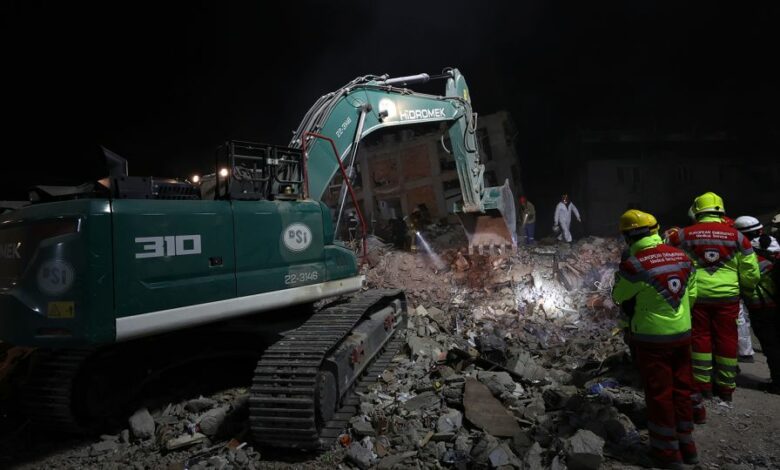
More than nine days after a powerful quake shook Turkey and Syria, rescuers were still pulling people from the rubble, defying predictions that the time for survival had passed.
On Wednesday, Turkey’s Ministry of National Defense released video showing rescuers extricating a 77-year-old woman from debris in the city of Adiyaman on Tuesday, some 212 hours after the earthquake struck.
Turkey’s state-run news agency Anadolu identified her as Fatma Gungor, and said her family hugged her after she was saved.
Then on Wednesday, another woman, identified as 45-year-old Melike İmamoğlu, was rescued after 222 hours in rubble in the city of Kahramanmaras, according to Turkey’s state television TRT Haber.
Earlier, teams in southern Turkey said they were still hearing the voices of trapped survivors.
Live images broadcast on CNN affiliate CNN Turk on Tuesday showed rescuers working in two areas of the Kahramanmaras region, where they were trying to save three sisters – but it’s unclear if the sisters survived.
In the same region, emergency workers saved a 35-year-old woman believed to have been buried for around 205 hours, according to state broadcaster TRT Haber. Others were rescued too – two brothers, two men and a women – all on Tuesday, eight days after the quake.
Dr. Sanjay Gupta, CNN’s Chief Medical Correspondent, who’s in Turkey’s Hatay province, says it’s unusual for people to survive more than 100 hours trapped in rubble – most are rescued within 24 hours.
However, he says freezing temperatures in the quake zone may be extending survival times for people trapped.
“The cold weather is a double edged sword. On the one hand, it makes it very difficult, it is below freezing right now… On the other hand, it may reduce the demands for water. Perhaps that is playing into this,” he said.
“There is not a lot of data on how long people could survive in these situations but we are seeing those rescues 200 hours out.”
‘Traumatized population’
Meanwhile in Syria, rescue operations are starting to shift to recovery efforts, and UN workers are racing to funnel aid to survivors in the country through two new border crossings approved by the government in Damascus.
Eleven trucks with UN aid crossed into northwest Syria via the Bab Al-Salam passage on Tuesday, UN aid chief Martin Griffiths tweeted, adding that 26 more trucks passed into the region via the Bab Al-Hawa crossing.
On both sides of the border, the World Health Organization (WHO) has stressed the need to “focus on trauma rehabilitation” when treating populations affected by the disaster.
The WHO’s Turkey Representative Batyr Berdyklychev highlighted the “growing problem” of a “traumatized population,” stressing the need for psychological and mental health services in the affected regions.
“People only now start realizing what happened to them after this shock period,” Berdyklychev told a media briefing in the Turkish city of Adana on Tuesday.
The WHO is negotiating with Turkish authorities to make sure quake survivors can access mental health services, Berdyklychev added, noting that many people displaced by the quake to other areas of the country “will also need to be reached.”
WHO Regional Director for Europe Hans Kluge said the “immediate priority” for the 22 emergency medical teams deployed by the WHO to Turkey was “to deal with the high number of trauma patients and catastrophic injuries.”



